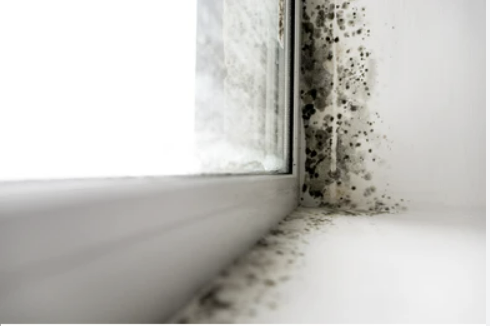
0:03 AM, 19th November 2024, About 2 months ago 2
Text Size
Councils across England are taking a tougher stance on private landlords, introducing stricter regulations and hefty fines – but are facing significant backlash for their own housing failures, the Telegraph reveals.
Its investigation found that local authorities were ordered to pay £1.7 million in compensation to tenants last year – a nearly fourfold increase from the year before.
The surge in compensation pay outs was largely driven by a threefold rise in complaints about mould and damp.
Lambeth Council in London emerged as the biggest offender, paying out £120,615 in compensation, a staggering 372% increase year-on-year.
Hammersmith and Fulham Council followed closely behind with a £120,542 pay out, a 193% increase.
Both councils have recently implemented selective licensing schemes, placing additional burdens on private landlords.
Outside of London, Birmingham City Council topped the list with a £79,170 compensation bill, an 80% increase.
The council also introduced a selective licensing scheme last year, charging landlords £700 per property.
The Housing Ombudsman, Richard Blakeway, recently named and shamed the top 10 worst social landlords for complaints handling, including six councils.
Five of these were in London, and one in the West Midlands.
He told the Telegraph: “The increase in complaints is partly a reflection of the housing emergency in this country, and whilst landlords will handle many requests very effectively, there are clear themes that we see in our casework where complaints are not handled well.
“This is a reflection, too, of the age and design of some social homes in this country.
“Compensation has increased due to us investigating more complaints.”
The Telegraph also highlights that while councils are quick to penalise private landlords for housing violations, some have struggled to maintain adequate standards in their own properties.
Southwark Council, for example, was forced to refer itself to the Regulator of Social Housing after admitting to failing to conduct essential electrical safety checks on council homes.
The National Residential Landlords Association’s Chris Norris said the Ombudsman’s data shows that damp and mould problems can affect social housing ‘every bit as much’ as PRS homes.
He told the Telegraph: “As the Government seeks to crack down on poor quality private rented housing, the same focus is needed in the social rented sector.”
A spokesperson for Birmingham City Council stated that the increased compensation pay outs reflect a more proactive approach to addressing tenant complaints and improving housing standards.
The council says it has committed to investing £1.5 billion over the next eight years to upgrade its housing stock.
Lambeth Council acknowledged the need for improvement in its complaints handling process and highlighted investments in its housing portfolio.
It also defended its selective licensing scheme, pointing to support from residents and businesses.
Hammersmith and Fulham Council did not respond to requests for comment.
Previous Article
Why was my Universal Credit direct rent payment request denied?
Godfrey Jones
Become a Member
If you login or become a member you can view this members profile, comments, posts and send them messages!
Sign Up18:50 PM, 20th November 2024, About 2 months ago
In my experience, whilst a small proportion of properties can be more susceptible, the majority of 'mould' issues are actually down to tenants lifestyle and CONDENSATION.
I had a tenant in a property for 10 years after living there myself for 5 years with no issues at all. Then within months of a new tenant moving in there were complaints of mould. When I sent someone round it wasn't so much mould as condensation. The property had already been fully insulated and bought up to level 'C'. But the tenants were drying clothes on radiators, the extractor fans had been covered over with Ducktape, and the tenants didn't like opening windows after making steam in the kitchen and bathroom. They were instructed on how to clean with bleach solution and told to remedy ventilation. The complaint went away until the following winter!
Now, if those tenants had reported me to the LA or they had used "mould" as an excuse against a Sec 21 etc I think I would have been portrayed as the evil landlord. If I'd have been held responsible by the LA for putting it right I'd have had to go round twice a week!!
For a bit of peace of mind I write it into my Tenancy Agreements now that condensation is the responsibility of the Tenants.
Stella
Become a Member
If you login or become a member you can view this members profile, comments, posts and send them messages!
Sign Up23:25 PM, 20th November 2024, About 2 months ago
Reply to the comment left by Godfrey Jones at 20/11/2024 - 18:50
Some tenants seem to call everything mould even when it is condensation.
I have even given them dehumidifiers in the past but not all tenants will use them.
It seems like we are fighting a loosing battle, the councils and government are very quick to take the tenants side because it suits their agenda.